


New Structure for the Government
Written By: Tomer Lotan, Vered Constantini
New Study by Tomer Lotan and Vered Constantini at the Israel Democracy Institute

The Effectiveness of the Public Services in Israel: An International Comparison
Written By: Adv. Rita Golstein-Galperin, Ofir Mohaban, Roe Kenneth Portal
The tragedy of October 7, and the lack of a public sector response over the course of the ongoing crisis, shed light on the grim situation. This review presents figures and trends relating to the performance of the public sector and its ability to provide services and solutions in real time.

Financial Aggregates and New Budgetary Priorities for Israel
Written By: Prof. Karnit Flug, Tzachi David, Roe Kenneth Portal
In May 2023, the Knesset approved a two-year state budget for 2023–2024. However, following the outbreak of the war in Gaza and the accompanying conflict in the north, the budget's composition, safety cushions, and especially the priorities it reflects are no longer suited to Israel’s economic and geopolitical realities.

The Effects of ICC Warrants on Israel
IDI's Prof. Amichai Cohen, an expert in international law, explains the repercussions that ICC warrants may have on Israel. Should these warrants be issued, 120 countries would be obligated to execute them. They could severely damage Israel's international image, impacting Israeli officials as well as economic and cultural cooperation

Timeline: The Ultra-Orthodox and the IDF Draft
When did the ultra-Orthodox first receive an exemption from military service? How have Haredi demographics influenced this issue?
This is a timeline of the central milestones affecting the issue of Haredi conscription.

The latest military exemption law - a return to the 2022 (non-) conscription law
Written By: Yohanan Plesner , Adv. Shlomit Ravitsky Tur-Paz, Dr. Gilad Malach
The proposed law ignores the dramatic change in Israel's security situation since October 7 and does not address the need for more combat soldiers, nor does it respect the burden on the populations that already serve.

Man vs. Machine: A Not Quite Fictional Story About AI Gone Rogue
Written By: Dr. Tehilla Shwartz Altshuler
A fictional tale of the very real danger in the absence of global regulation of AI.

Economic Implications of Drafting Ultra-Orthodox in Israel
In new research, IDI experts Shlomit Ravitsky Tur-Paz and Gabi Gordon find that conscripting even a small percentage of eligible Haredi men would save the Israeli economy billions of shekels annually. They found that drafting even 20% of Haredi men would significantly reduce the number of days necessary for reserve duty and save 2.5 billion shekels in budgetary expenses by 2050. Full conscription of the ultra-Orthodox men would eliminate the need for reserve duty by 2045 and save the Israeli economy between 8-10 billion shekels.

A Majority of Jewish Israelis See a Hostage Deal as a Higher National Priority Than Military Action in Rafah
Written By: Prof. Tamar Hermann, Dr. Lior Yohanani, Yaron Kaplan
The majority of the Jewish public (56%) think that securing a deal for the release of the hostages is the highest priority; a higher share of Jewish respondents think Trump would be better for Israel as US president; most Israelis think that celebrations of Israel's 76th Independence Day should be more restrained and less prominent this year.

On Unifying Discourse and Divisive Acts
Written By: Prof. Amichai Cohen
Demands to lower the flames of criticism cannot legitimately be made by a government taking actions driven by narrow political interests. If the government does not act in a nonpartisan manner, they cannot demand those who hold different views refrain from opposing political action.

A Rise in Complaints of Police Violence
Written By: Dr. Guy Lurie
The increase in the number of complaints of police violence submitted to the DIPI over the last year raises serious questions, especially in light of the timing in which the current Government and Minister of National Security took office. This research surveys the trends in complaints of police violence.

Digital Antisemitism: The Largest Propaganda Machine Since the Holocaust
Written By: Dr. Tehilla Shwartz Altshuler
We have entered an era of "digital antisemitism." It is driven, first and foremost, by the insufficient enforcement of moderation policies on social media platforms

The Judicial Overhaul and Anti-Democratic Initiatives
Written By: Adv. Anat Thon Ashkenazy, Adv. Daphne Benvenisty
Judicial overhaul initiatives, along with other anti-democratic measures, have continued to be promoted by the government and the coalition in the Knesset. This document outlines the various actions taken in government that weaken the Israeli judiciary and democracy at large.

ICC Arrest Warrants Would Harm Israel at Home and on the International Stage
Written By: Prof. Amichai Cohen
From damage to scientific collaboration to cancellation of arms deals, arrest warrants for senior Israeli officials from the International Criminal Court in the Hague would pose a serious challenge to Israel

Iran’s Attack Sets a Dangerous Precedent
Written By: Dr. Jesse Ferris
The Iranian missile attack on April 13th set a very dangerous precedent for the future. Had one of the few missiles that managed to penetrate Israel's air-defense shield been fitted with a nuclear warhead, the outcome would have been devastating. This is why the phenomenal achievement of the Israeli Air Force and its allies on Saturday night must not blind us to the danger ahead.

Israelis say the time has come for those responsible for October 7 to step down
Written By: Prof. Tamar Hermann, Dr. Lior Yohanani, Yaron Kaplan
After more than six months of war, we found that among both Jewish (58%) and Arab Israelis (81%) there is widespread agreement that now that the majority of Israeli forces have left the Gaza Strip, the time has come for those who were responsible for the failure of October 7 to resign from their positions.
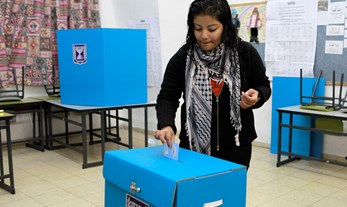
Representation of Women in Arab Local Authorities Following the Results of the 2024 Local Elections
Written By: Maisam Salem, Adv. Lital Piller
The recent municipal elections produced particularly interesting results in Arab local authorities. Below, we examine several aspects of these results relating to the representation of Arab women.
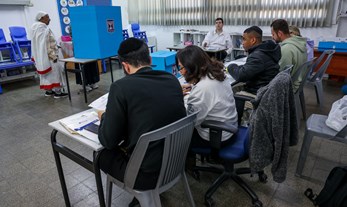
Analysis of the 2024 Local Elections
Written By: Dr. Ariel Finkelstein
On February 27, 2024, elections were held in 242 localities throughout Israel. The following analysis reviews the results of the elections from a number of angles.

Quantity and Cost of Reserve Service in the Event that Haredim Enter Regular and Reserve Service in the IDF
Written By: Adv. Shlomit Ravitsky Tur-Paz, Gabriel Gordon
We examine the increased burden of reserve service that the defense establishment is seeking to impose on the population groups that already perform regular and reserve service, and the economic-budgetary implications of this step for the period through to 2050.
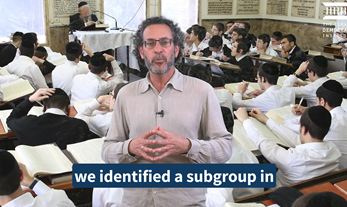
Alternative Yeshivas and Changing Perspectives Among Haredi Youth
Dr. Asaf Malchi's research explores the perspective of yeshiva students, their personal and social challenges and highlights a subgroup of 'alterative yeshivas' and their shifting perspectives on vocational training and employment.
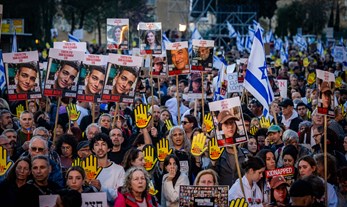
Across the Political Spectrum, Only a Minority of Israelis Think the Government will Survive to the End of its Term
Written By: Prof. Tamar Hermann, Dr. Lior Yohanani, Yaron Kaplan
Slightly more than half of Jewish respondents think that the government is doing all it can to bring the hostages home; only a minority of Arabs concur. Only a minority of Israelis think the government will complete its four-year term and a majority of Israelis think that Hamas has succeeded in refocusing international attention on the Palestinian problem.
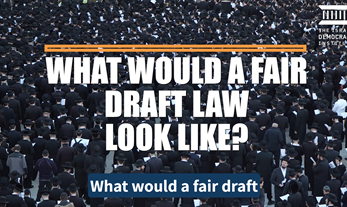
A Fair Draft Law, What Would That Look Like?
IDI's Dr. Gilad Malach explains what a fair draft law for the ultra-Orthodox would look like. One that would distribute the burden over Israel's security more equally while enabling young Haredi men to integrate into the job market.

JFNA & IDI Webinar on Israel’s Economy with Prof. Karnit Flug and Bloomberg News’ Galit Altstein
IDI's Prof. Karnit Flug, VP of Research and the William Davidson Senior Fellow for Economic Policy joined Jeff Schoenfeld, Chair of the Jewish Federation's Israel and Overseas Committee and Bloomberg's Galit Altstein to discuss the implications of the ongoing war in Gaza on Israel's economy.
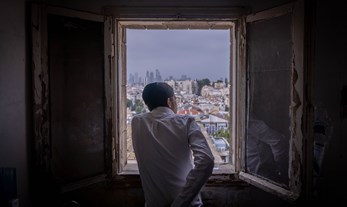
I, Too, Have Come to my Senses: It is Time to Rethink the Haredi Role in Israeli Society
Written By: Dr. Rivka Neriya Ben-Shahar
Dr. Rivka Neriya-Ben Shahar proposes a model that resembles the secular educational system of colleges and universities to identify the most gifted torah scholars, who would receive a generous stipend. Others must rethink their role as part of Israeli society.

From the World of Torah Study to the World of Work: Social Challenges and Employment Potential Among Haredi Yeshiva Students
Written By: Dr. Asaf Malchi
This study was designed to assess the level of satisfaction among students in higher yeshivot (ages 17 and above), their personal and social challenges, and their attitudes toward possible alternatives to yeshiva studies, such as vocational training and employment.

Majority of Israelis give low ratings to Prime Minister Netanyahu; high ratings to IDF Chief of Staff
Written By: Prof. Tamar Hermann, Yaron Kaplan, Dr. Lior Yohanani
The majority of Israelis gave Prime Minister Netanyahu low ratings (57%), while IDF Chief of Staff Herzi Halevi topped the rankings of positive performance (48%). More than two-thirds of Israelis think we are on the verge of an all-out-war with Hezbollah – 69%.

Response to the Government's Proposal for Haredi (non-) Conscription
Written By: Yohanan Plesner , Dr. Gilad Malach
Response to the Government's Proposal for Haredi (non-) Conscription by Yohanan Plesner, President of the Israel Democracy Institute, and Dr. Gilad Malach, Head of IDI's Ultra-Orthodox in Israel Program
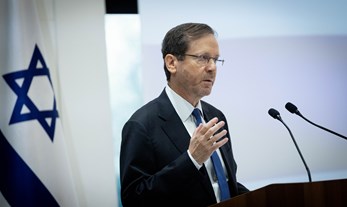
Despite the Criticism, the Public’s Confidence in the President of Israel Has Increased—Evidence of a Yearning for Nonpartisanship in a Tumultuous Time
Written By: Dr. Dana Blander
What has produced the rise in the President’s confidence rating? One explanation is the public’s yearning for nonpartisanship in a time of crisis.
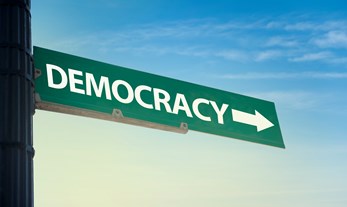
Continue to Stand Guard: Israel's Decline in Global Democracy Metrics is Troubling, but Not Catastrophic
Written By: Dr. Assaf Shapira
V-Dem's latest report downgraded Israel's status from a "liberal democracy" to an "electoral democracy." The change in Israel's category is concerning, but on its own, it does not necessarily indicate a clear democratic decline.
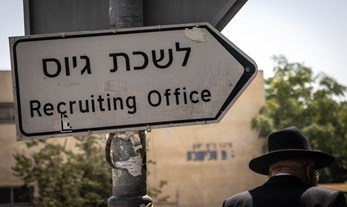
Military Service Law and Reserve Service Law Amendments (extension of mandatory and reserve service period): Professional Opinion
Written By: Yohanan Plesner , Dr. Eran Shamir-Borer, Prof. Amichai Cohen
The government wishes to amend the Military Service Law and Reserve Service Law due to the new security circumstances arising from the outbreak of the war in Gaza. While recognizing the immediate imperative to respond to IDF's personnel needs, we oppose these legislative proposals.

